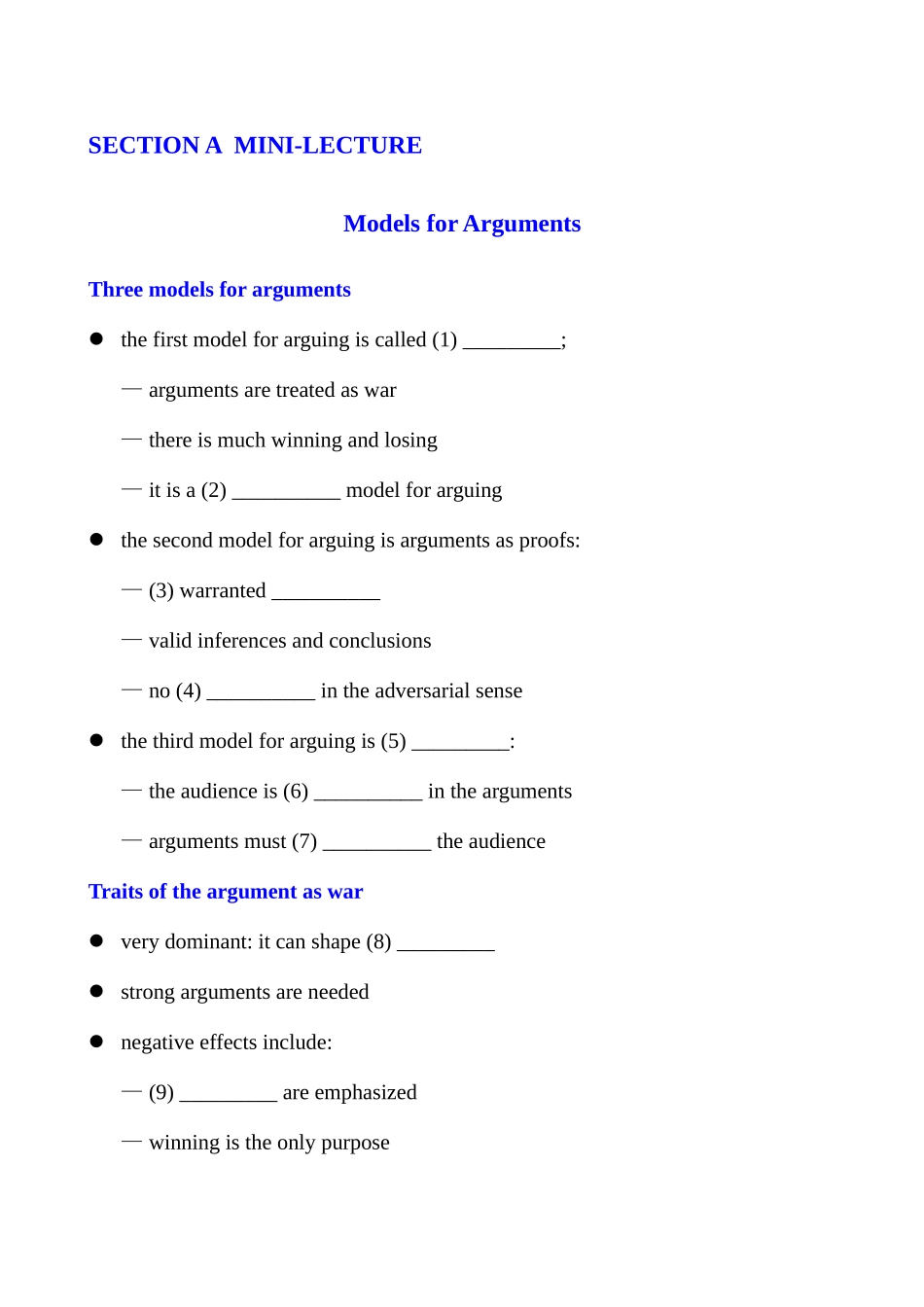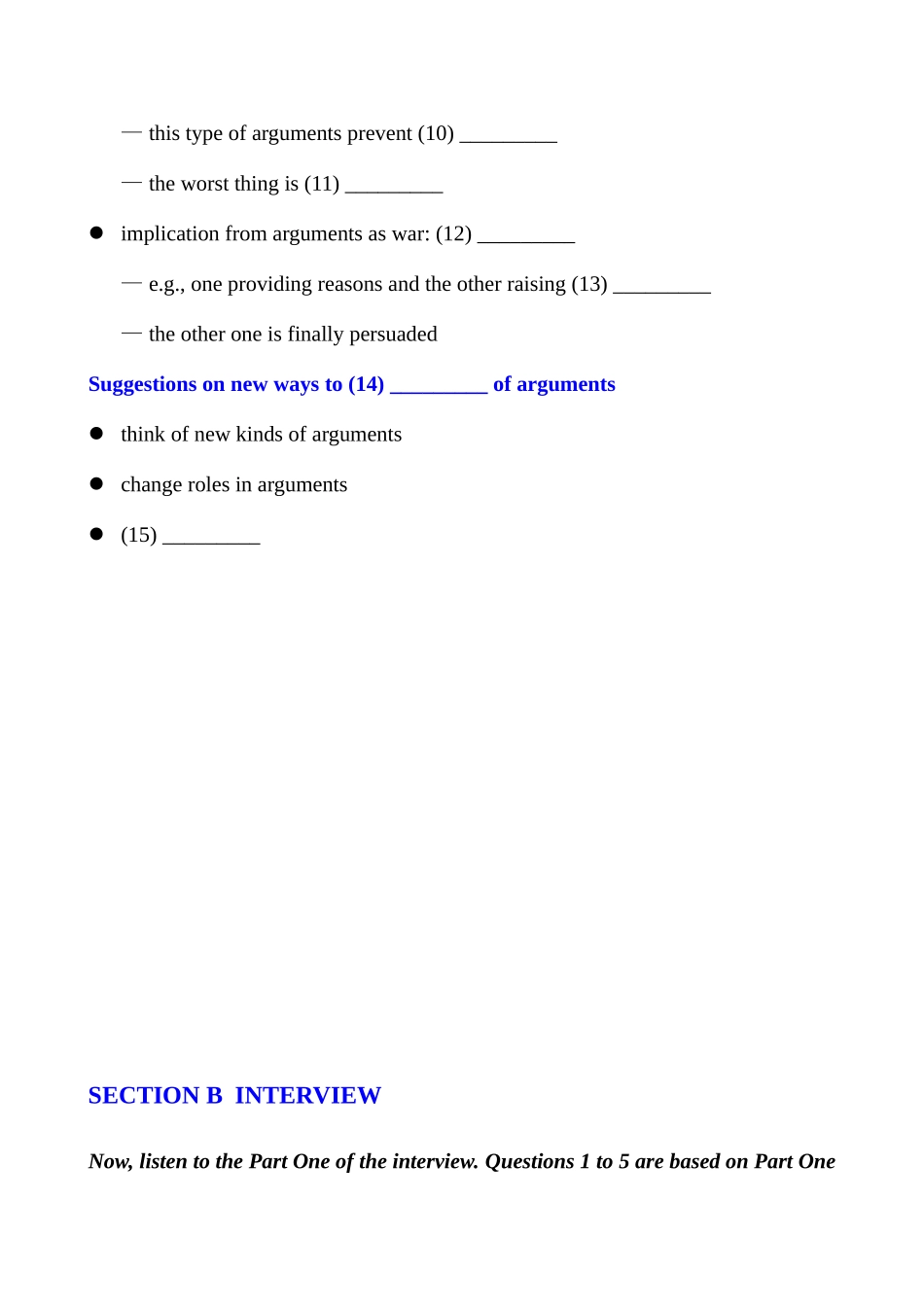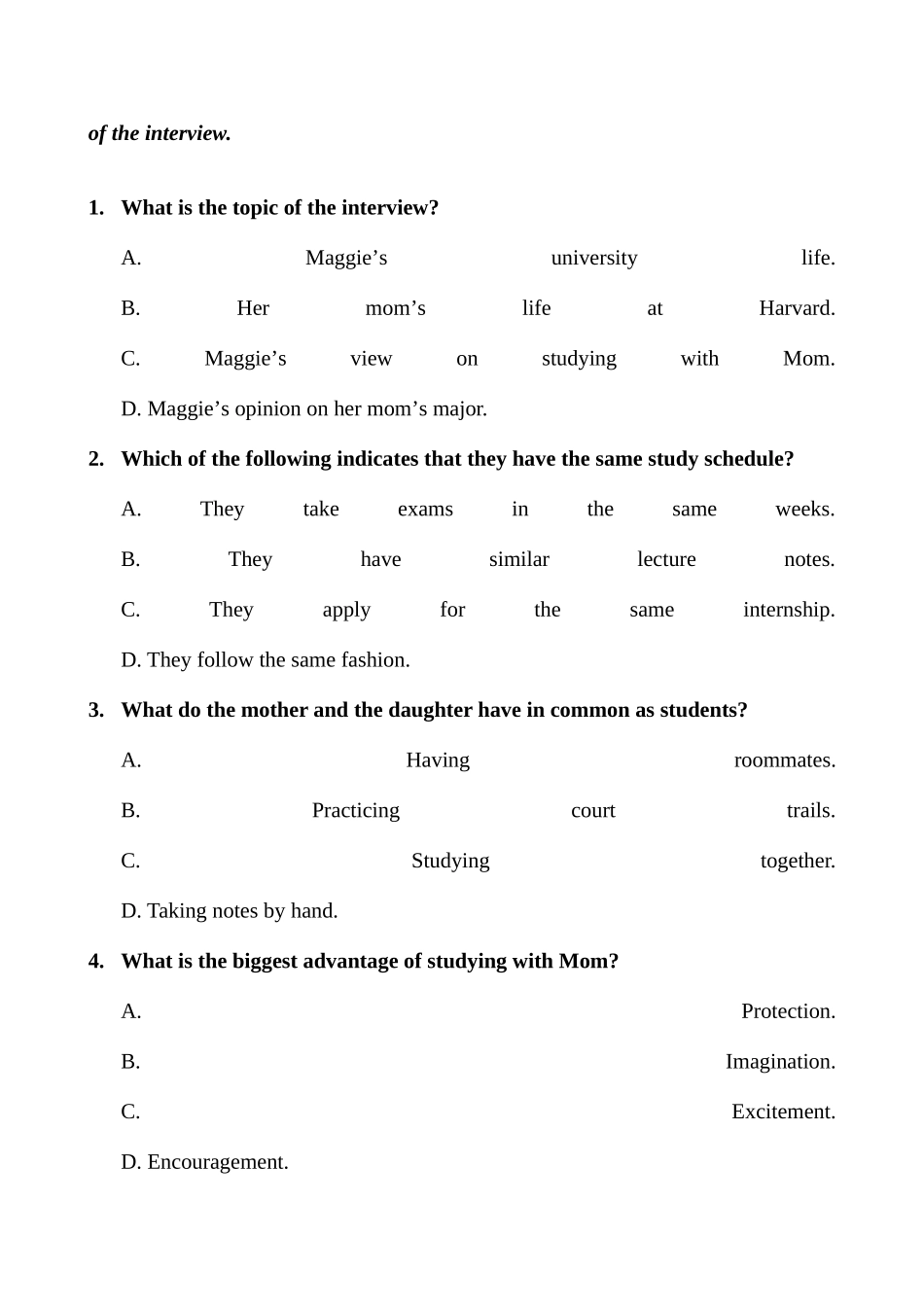SECTION A MINI-LECTUREModels for ArgumentsThree models for arguments the first model for arguing is called (1) _________;— arguments are treated as war— there is much winning and losing— it is a (2) __________ model for arguing the second model for arguing is arguments as proofs:— (3) warranted __________— valid inferences and conclusions— no (4) __________ in the adversarial sense the third model for arguing is (5) _________:— the audience is (6) __________ in the arguments— arguments must (7) __________ the audienceTraits of the argument as war very dominant: it can shape (8) _________ strong arguments are needed negative effects include:— (9) _________ are emphasized— winning is the only purpose— this type of arguments prevent (10) _________— the worst thing is (11) _________ implication from arguments as war: (12) _________— e.g., one providing reasons and the other raising (13) _________— the other one is finally persuadedSuggestions on new ways to (14) _________ of arguments think of new kinds of arguments change roles in arguments (15) _________SECTION B INTERVIEWNow, listen to the Part One of the interview. Questions 1 to 5 are based on Part One of the interview.1. What is the topic of the interview?A. Maggie’s university life.B. Her mom’s life at Harvard.C. Maggie’s view on studying with Mom.D. Maggie’s opinion on her mom’s major.2. Which of the following indicates that they have the same study schedule?A. They take exams in the same weeks.B. They have similar lecture notes.C. They apply for the same internship.D. They follow the same fashion.3. What do the mother and the daughter have in common as students?A. Having roommates.B. Practicing court trails.C....


